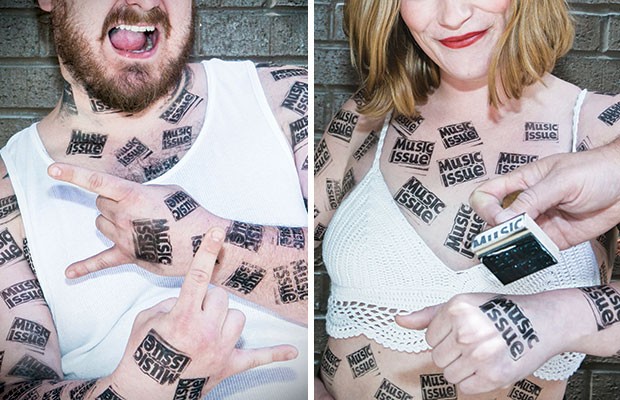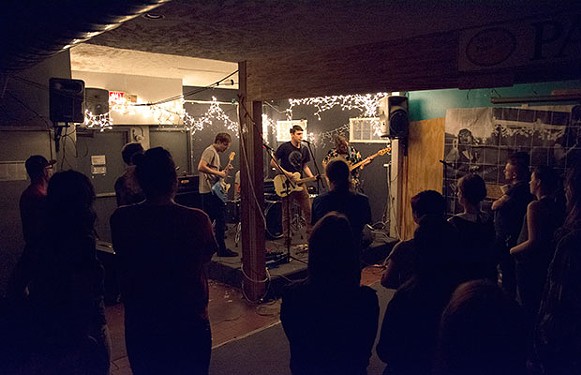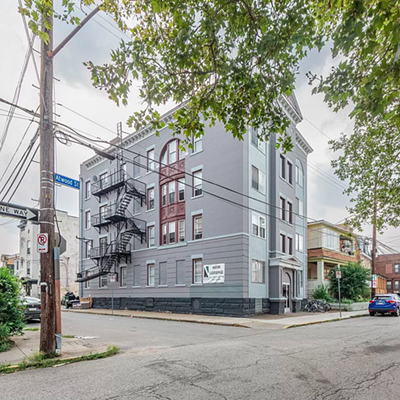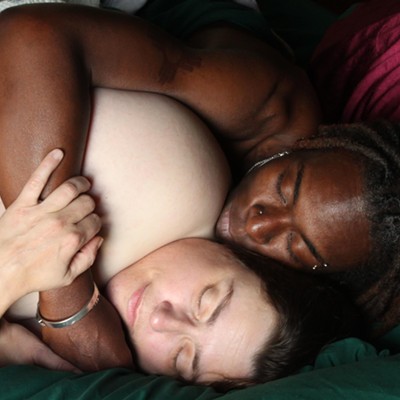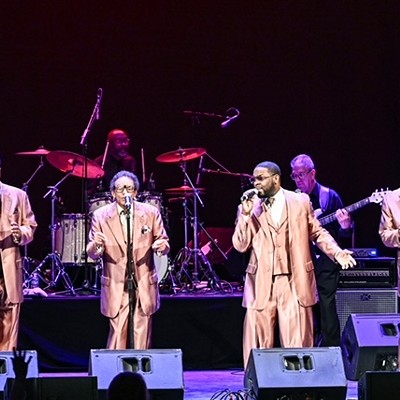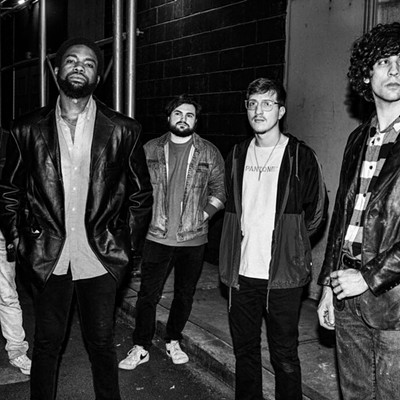Pittsburgh is a city full of musical talent. Musicians of all races, ages, sizes, shapes, genders and sexualities collaborate, take up space, make noise and celebrate the beautiful expression that is music.
We have homegrown record labels, independent record stores, a wide variety of music spaces, practice rooms in Etna and Allentown and Bloomfield, and cooperative-learning spaces to screen shirts and bags and posters. On any given night, you might have to pick from between three to seven vastly different shows spread across the city.
Actually, the Pittsburgh music community is a lot like the city itself. There’s a core group of people (kind of like Downtown in this scenario), who spend time seeing and booking all sorts of music. There are also almost 100 other genre- and location-specific music scenes that reflect the neighborhoods piled together and on top of each other in the greater Pittsburgh area. Much like the city’s actual residents, there are people who move between these neighborhoods and scenes, some people who never leave their ZIP codes, and others who seem to never leave their bedroom, but certainly have a lot to say online.
Full disclosure: I love Pittsburgh and I love its music. When I went to school in Ohio, I’d never miss a gig in Athens that featured a band touring from Pittsburgh, even if the genre wasn’t my favorite at the time. I once piled in a car and traveled 90 minutes on a “school night” just to see three Pittsburgh hardcore bands perform at a show in Columbus. Why? Because I felt the hunger to show up for the back-home scene that I love. I am hopelessly devoted to the weird creative epicenter that is our city.
At this moment, there is so much talent in Pittsburgh. I’d need more than 10 fingers and 10 toes to count all the bands, songwriters, producers and recording engineers in this city who impress me on a regular basis.
There are venues, like the Mr. Roboto Project, that reflect some of the things I love most about the DIY scene. It’s an all-ages, straight-edge location that has gender-neutral bathrooms, regularly showcases visual art, and provides a space for artists to sell their wares. The ticket prices are generally affordable, and it serves as a gathering place on non-show nights for meetings and activist planning.
In addition to Roboto, there are some 21-and-older venues that consistently showcase local talent, like Spirit, in Lawrenceville, and the Funhouse at Mr. Smalls, in Millvale, as well as Gooski’s, in Polish Hill, and Howlers, in Bloomfield. I could list a lot more, but you could just keep an eye on the concert calendar and check out the dozens of venues in the city doing great work.
At this moment, there are bands in Pittsburgh whose albums end up on my Top 10 lists at the end of the year. Pittsburgh isn’t just home to good local bands, it’s home to great artists. Period.
What makes me even more excited is that a healthy chunk of this community of creators are people of color, non-men, queer folks, trans folks, working-class folks, etc. While every scene could do better to consistently book diverse talent, some of the biggest movers and shakers with the most powerful voices and presences fall into social categories that are usually disenfranchised. And if you want to see more of that, it’s imperative that you take the time, and use your money, to go out and support these musicians in their mission.
Now, I don’t love the scene so much that I can’t see its flaws or where there’s room for improvement. There’s desperate need for more all-ages and substance-free spaces, as well as affordable venues. In my humble opinion, a four-band-maximum bill and fewer late shows would be lovely. Seeing more group shows, featuring a variety of genres and performer ages would also be super refreshing. That would also help bring different corners of the scene together in a meaningful way. All-ages shows need to be promoted to high schoolers to foster teen involvement in the community.
The scene’s greatest enemy is the constant internet complaining. Some grumpy folks, young and old, amplify their voices online to talk about the things they dislike about the community. My hot take? If you’re truly not impressed with the labels, promoters, musicians and producers in the city, close your laptop, and get up and make your own that reflects the scene you want.
In this year’s music issue, we’re showcasing just a sliver of the best that Pittsburgh has to offer. For example, we profile Glitter Box Theater, an all-ages venue with an incredibly accessible room cost and a game plan geared toward making spaces friendly for families, and which also features art that isn’t just music. CP also dives into Pittonkatonk, an annual day of music that serves to fund a year-round music-education program and create a sense of communal power. We examine artists who are taking their careers into their own hands by promoting themselves on social media. Then we’ll look at the 4th River Music Collective, which highlights the power of collaboration and visible music. High school student Grant Charney’s promotion group, Social Fools, reminds us of the power of youth involvement; and some of the pillars of the scene give insight into the community, including DJ Afterthought, who is leaving the Steel City. We want this music issue to serve as a reminder that we have a talented creative community, one that’s worth the time and energy to explore and support.

